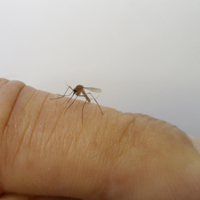Summer Safety Alert: Local Mosquitoes Have Tested Positive for West Nile Virus
September 30, 2017 The Pennsylvania Department of Health reported that in more than 35 Philadelphia counties, mosquitoes have tested positive for West Nile virus. Although West Nile virus can often be effectively treated when diagnosed in a timely manner, it can also cause serious physical symptoms and even death.
The Pennsylvania Department of Health reported that in more than 35 Philadelphia counties, mosquitoes have tested positive for West Nile virus. Although West Nile virus can often be effectively treated when diagnosed in a timely manner, it can also cause serious physical symptoms and even death.
According to local news reports, a Montgomery County resident recently contracted the infection– it is the first report of a human case so far this year. Public health officials are warning people who live locally to take precautionary measures in order to protect themselves and their family members.
West Nile virus is fairly uncommon in the United States, with the Centers for Disease Control and Prevention (CDC) reporting roughly 44,000 cases since 1999, when the virus was first detected here. Since its detection, the virus has caused an excess of 20,000 spinal and brain infections as well as nearly 2,000 deaths. Because the virus can, in extreme cases, affect the central nervous system, it is possible to develop meningitis – an inflammation of the membranes that surround the spinal cord and brain – in addition to brain inflammation.
CDC statistics show that that 1 in 5 people who get West Nile develop a fever accompanied by other mild symptoms, while 1 out of every 150 people develop severe, life-threatening symptoms. Currently, 1 in 10 Americans who get the virus die from it. While the majority of people (70-80%) will not present symptoms, the virus still inflicts serious, painful and deadly complications in others.
In cases when a person requires medical attention because the symptoms are so severe, a doctor may prescribe intravenous fluids, nursing care or pain medications to combat side effects. Mild symptoms of the infection can include body aches, rash, diarrhea, headache, vomiting and joint pain – symptoms like these can often be resolved through getting rest and, if recommended by a medical professional, taking over-the-counter medications to relieve residual discomfort. People usually make a full recovery from the illness but in some extreme cases, the symptoms stick around for months or can cause permanent damages.
Some individuals are at a higher risk for contracting the virus, like those who are above 60 or have a history of kidney disease, cancer, hypertension and diabetes. People with organ transplants are at a higher risk also. If you are someone who is at a higher risk for contracting West Nile virus, public health experts advise taking extra precautionary measures to decrease the chances of transmission during mosquito-heavy summer months.
Because people most often become infected with West Nile virus from mosquito bites, there are preventive measures that we can each take to help limit the likelihood of getting sick. Some of these tips include:
- Apply effective and safe insect repellent before going outside;
- Watch out for bites, especially at sunrise and sunset – this is when mosquitoes are most active;
- Report any dead birds you find to your state and local health departments (this may be a sign that birds in your area are infected with the virus), and:
- Eliminate as much standing water outside your home as you can (such as pet water bowls, flowerpots, gutters, etc.)
Please read the CDC’s full list of West Nile virus prevention and control tips.
Although becoming fatally ill from the virus is uncommon, it does happen – especially if a person has symptoms but does not see a doctor and receive medical treatment. If the virus has progressed and a person develops neurological effects, some symptoms to watch out for include high fever, tremors, coma, disorientation, paralysis, and seizures.
If you believe that you may have West Nile virus, it is important that you see your healthcare provider as soon as possible. There, you can get tested for the infection and your doctor will determine the appropriate course of medical treatment.
Philadelphia Personal Injury Lawyers at Galfand Berger, LLP Help Injured Victims Since 1947
West Nile is a serious virus that should not be taken lightly if diagnosed. If you have any legal questions or concerns, please contact our Philadelphia personal injury lawyers. With offices located in Philadelphia, Bethlehem, Lancaster, and Reading, Galfand Berger serves clients throughout Pennsylvania and New Jersey. To schedule a consultation, call us at 800-222-8792 or complete our online contact form. #WestNilevirus
 Google Screened
Google Screened
